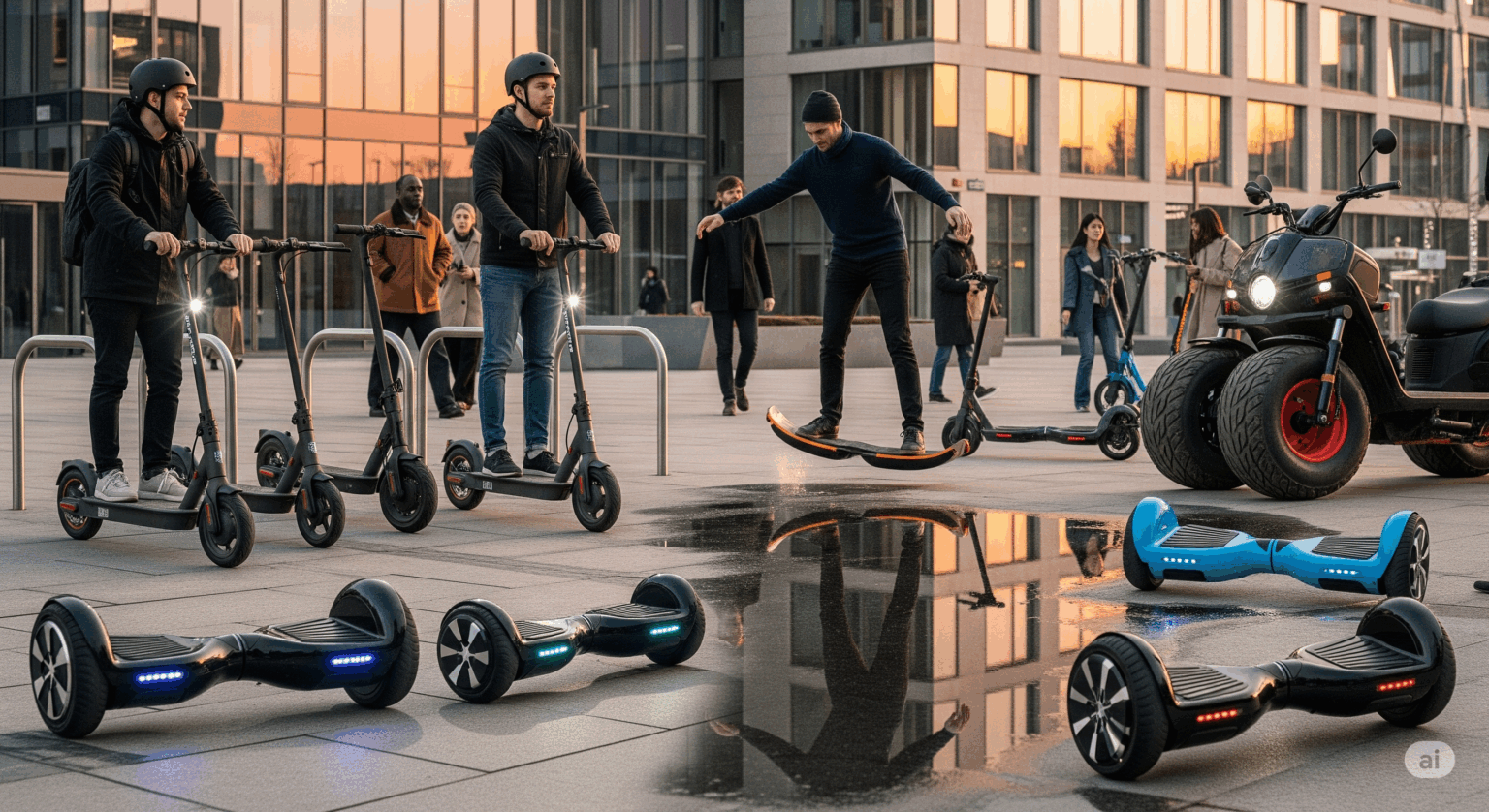Safety of Household, Commercial and Similar Electrical Appliances
Personal-e-Transporters
Strategic Recommendations for Personal-e-Transporters
- Start BIS Certification Process Now
Begin safety testing, documentation, and audit preparations early to meet the compliance deadline. - Partner with Compliance Experts
ERA’s technical team can help in filing applications, coordinating lab testing, and ensuring ISI marking. - Contact ERA Support Team
📧 cs@eraglobal.co.in | 📞 +91 9599296331 | 💬 WhatsApp
For expert assistance on BIS certification, Schedule A declarations, and packaging compliance. - Track Notifications & Circulars
Subscribe to the ERA Newsletter for BIS updates, QCO amendments, and enforcement schedules. - Ensure Marking Before Sale
Verify ISI marking is correctly applied to every unit before distribution to avoid legal action.

| Section | Details |
|---|---|
| Product Name | Personal-e-Transporters |
| Applicable Indian Standard (IS) No. | IS 302 (Part 1):2024 |
| Title of Indian Standard | Household and Similar Electrical Appliances – Safety – Part 1: General Requirements |
| Quality Control Order | Safety of Household, Commercial and Similar Electrical Appliances (Quality Control) Order, 2025 |
| Notification & Amendments | Notified via S.O. 2232(E), dated 19 May 2025 Supersedes QCO 2024: S.O. 4098(E), dated 17 Sept 2024 |
| Final Enforcement Date | Large & Medium Enterprises: 19 March 2026 Small Enterprises: 19 June 2026 Micro Enterprises: 19 September 2026 |
| Objective & Scope | To ensure the safety of battery-powered personal electric transport devices through standardised design, testing, and BIS certification. |
| Products Covered | Electrically powered personal mobility devices, including electric scooters, self-balancing boards, and hoverboards intended for household or recreational use. |
| Exemptions | - Products exclusively for export - R&D imports (up to 200 units/year) - Schedule A stock clearance allowed for up to 6 months post-enforcement |
| Industries Impacted | E-mobility manufacturers, personal transport device brands, lithium battery suppliers, urban mobility service providers |
| Mandatory Compliance | - Must conform to IS 302 (Part 1):2024 - BIS certification under Scheme-I is mandatory - ISI mark must be affixed on product and packaging |
| Next Steps for Stakeholders | Apply for BIS licence, conduct testing at BIS-approved labs, ensure proper ISI marking, declare Schedule A stock |
| Legal Framework Provision & Enforcement | Enforced under BIS Act, 2016 by BIS with inspection and prosecution authority |
| Penalties | Non-compliance may result in seizure of stock, license suspension, fines, or imprisonment up to 2 years, or both |
| Conclusion | From 19 March 2026, all personal-e-transporters sold in India must meet IS 302 (Part 1):2024 safety standards, be BIS-certified, and bear the ISI mark, ensuring rider safety, product reliability, and legal compliance. |
| References/Annexures | - QCO 2025: S.O. 2232(E) [19 May 2025] - Superseded QCO 2024: S.O. 4098(E) [17 Sept 2024] |
Ready to start your certification journey?
Let us help you navigate regulatory challenges and achieve certification with ease. Leave us your details, and we’ll get back to you—or request a free consultation today.
Get in touch with us today
Notification
Personal-e-Transporters are regulated under the Safety of Household, Commercial and Similar Electrical Appliances (Quality Control) Order, 2025, issued via S.O. 2232(E) on 19 May 2025 under the BIS Act, 2016, replacing the earlier 17 September 2024 QCO.
Overview
Personal-e-transporters include lightweight, electrically powered personal mobility devices used for short-distance travel or recreation. The regulation addresses safety concerns like electrical shock, fire hazards from batteries, braking reliability, and structural durability.
Objective & Scope
The QCO mandates that all personal-e-transporters meet the electrical and mechanical safety requirements specified in IS 302 (Part 1):2024. The standard covers electrical insulation, overcharge protection, thermal safety, and stability controls to prevent accidents.
Products Covered
- Electric scooters
- Hoverboards
- Self-balancing boards
- Compact e-mobility devices for personal transport
Exemptions Provided
- Products meant solely for export
- R&D imports (max 200 units/year) not for commercial sale
- Schedule A stock clearance for up to 6 months after enforcement
Industries Impacted
- E-scooter and hoverboard manufacturers
- Lithium-ion battery suppliers
- Urban mobility solution providers
- Retailers of personal e-mobility products
Mandatory Compliance Requirements
- BIS licence under Scheme-I is required
- Must conform to IS 302 (Part 1):2024
- ISI mark must be visibly affixed on product and packaging
Enforcement Timeline
- Large & Medium Enterprises: 19 March 2026
- Small Enterprises: 19 June 2026
- Micro Enterprises: 19 September 2026
Next Steps for Stakeholders
- Apply for BIS licence well ahead of enforcement date
- Submit samples for testing to BIS-approved labs
- Update product marking and packaging for compliance
- Declare existing non-marked inventory under Schedule A
Legal Provisions, Enforcement & Penalties
The BIS will enforce the regulation under the BIS Act, 2016.
Penalties for non-compliance include:
- Seizure of unmarked/non-compliant stock
- Suspension or cancellation of the license
- Fines and/or imprisonment up to 2 years, or both
Conclusion
From 19 March 2026, all personal-e-transporters must comply with IS 302 (Part 1):2024, be BIS-certified, and bear the ISI mark before sale in India. This ensures devices are safe, reliable, and built to prevent electrical and mechanical hazards, supporting both consumer safety and brand credibility.
Ready to start your certification journey?
Let us help you navigate regulatory challenges and achieve certification with ease. Leave us your details, and we’ll get back to you—or request a free consultation today.
